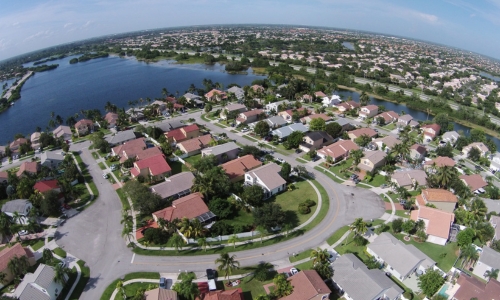Court Ruling Leaves Florida Law Restricting Foreign Ownership of Real Property Enforceable for All But Two
 On February 1, 2024, the United States Court of Appeals for the Eleventh Circuit partially granted the plaintiffs/appellants’ motion for an injunction pending appeal in Shen v. Simpson, No. 4:23-cv-208-AW-MAF (N.D. Fla. 2023), appeal docketed, No. 23-12737 (11th Cir. Aug. 23, 2023). This is the federal lawsuit challenging SB 264—the new State law that restricts certain individuals from China and other “foreign countries of concern” from owning real property in Florida.
On February 1, 2024, the United States Court of Appeals for the Eleventh Circuit partially granted the plaintiffs/appellants’ motion for an injunction pending appeal in Shen v. Simpson, No. 4:23-cv-208-AW-MAF (N.D. Fla. 2023), appeal docketed, No. 23-12737 (11th Cir. Aug. 23, 2023). This is the federal lawsuit challenging SB 264—the new State law that restricts certain individuals from China and other “foreign countries of concern” from owning real property in Florida.The Court determined that the plaintiffs/appellants are likely to succeed on their claim that SB 264 is preempted by federal law, particularly 50 U.S.C. § 4565, known as the Foreign Investment Risk Review Modernization Act of 2018. However, the order also noted that even if one has satisfied the requirements for a preliminary injunction, the Court retains discretion to decide whether such “extraordinary equitable relief is warranted even where the movant would face irreparable harm.”
Exercising this discretion, the Court granted the motion only as to Yifan Shen and Zhiming Xu (i.e., two of the plaintiffs/appellants). The primary reason was that these individuals had pending real estate transactions when SB 264 became effective, and therefore, have “the most imminent risk of irreparable harm in the absence of a stay.” The motion for a preliminary injunction as to the other plaintiffs/appellants—and everyone else that may be negatively impacted by the law—was denied.
At the end of the order, Judge Nancy Abudu wrote a separate concurring opinion to explain why she would have also granted the plaintiffs/appellants’ motion based on their claim that SB 264 violates the Equal Protection Clause. Judge Abudu agreed that the precedent set by the 100-year old Terrace cases (i.e., that each state, in the absence of any treaty provision to the contrary, has power to deny aliens the right to own land within its borders) has been called into question by more recent U.S. Supreme Court decisions (we discussed the Terrace cases in a previous blog). Putting it another way, state-based “alien” restrictions that were once legal “no longer stand constitutional muster.” This means if SB 264 was reviewed under strict scrutiny, the plaintiffs/appellants would have easily met their burden of showing a substantial likelihood of success on the merits.
What is the overall takeaway?
For the time being, the State cannot enforce SB 264 against Yifan Shen and Zhiming Xu with respect to their pending home purchases. However, the State can enforce SB 264 against the remaining plaintiffs/appellants and everyone else for all other real estate transactions in Florida. Despite this narrow ruling, the Court appeared to signal more skepticism with SB 264’s validity than Judge Winsor of the U.S. District Court of the Northern District of Florida.
The appeal is on an expedited track, with the Eleventh Circuit expected to hear oral arguments on the merits of the case in April.
Related Practices
Related People
YOU MIGHT ALSO LIKE
Bilzin Sumberg announces that it was namedBenchmark Litigation's 2013 "Antitrust Firm of the Year – South" in recognition of the firm's work on some of the most complex, high-stakes antitrust cases in the United States.
In the aftermath of major data breaches at deep-pocketed retailers and other businesses, there is typically no shortage of litigants who move quickly to seek compensation from the business at which the breach occurred. But whether the would-be plaintiffs’ claims get very far in court often dep...
The Florida Real Estate Commission’s new form buyer’s affidavits are now available as part of rule 61J2-10.200, F.A.C., which goes into effect on January 17, 2024. The affidavits were established to help implement portions of SB 264—last year’s controversial law that restrict...
